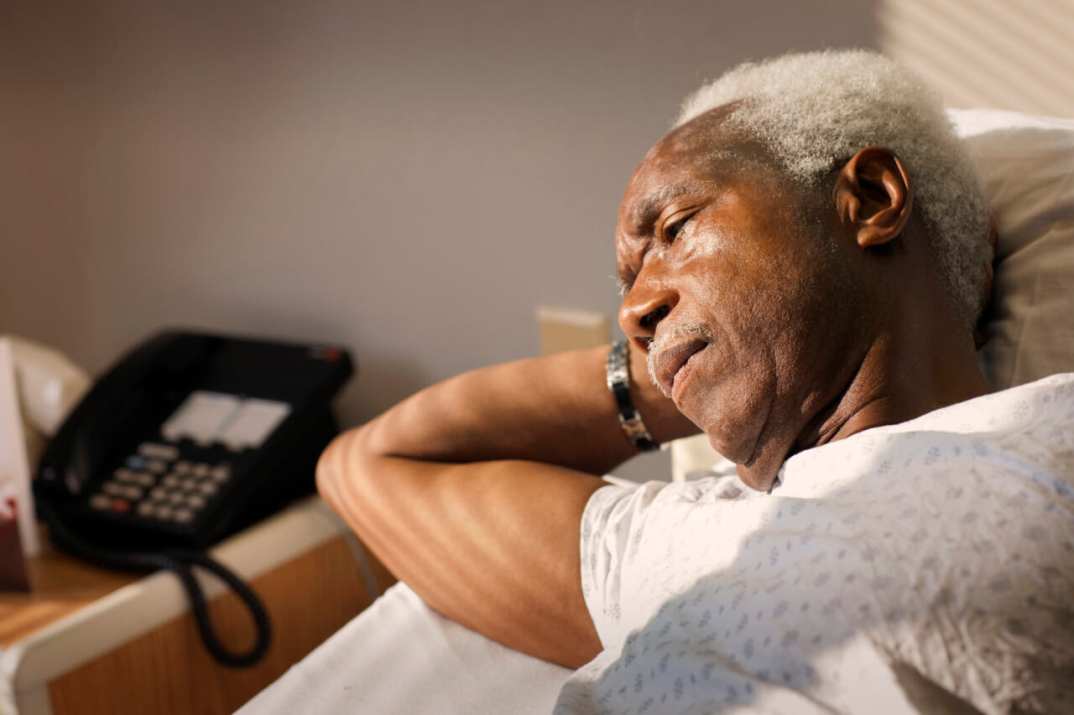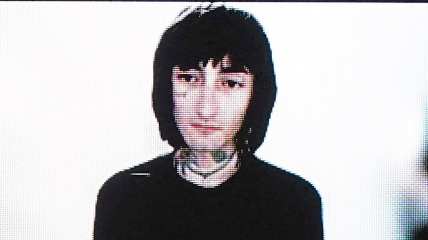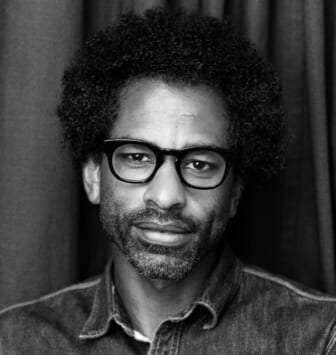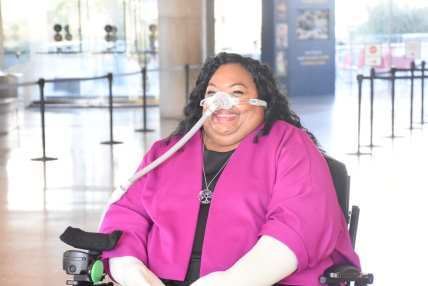There’s a good reason why some Black people don’t go to the doctor
OPINION: 'The Deadliest Disease In America' explores medical racism to help us see what's really going on at the doctor's office.

Editor’s note: The following article is an op-ed, and the views expressed are the author’s own. Read more opinions on theGrio.
There are a lot of good reasons why a lot of Black people don’t like going to the doctor. A visit could be expensive. Sometimes doctors lie—remember the horrific Tuskeegee syphilis study? And hey, Black folks know Robitussin can fix almost anything. Chris Rock made a whole joke about it.
But a lot of what really bothers us when we go to the doctor boils down to racism. Quite often medical professionals don’t talk to us or treat us with respect. This and the many other examples of medical racism are at the heart of the 2010 documentary, The Deadliest Disease In America, by filmmaker Crystal Emery. Many Black people find themselves being treated lesser than by doctors just because they’re Black, and it’s not only infuriating, it can lead to a lesser brand of care.
Many times, medical professionals do not believe what Black people are telling them or they may not believe that Black people experience pain in the same way as others, which leads to Black people being systematically undertreated for pain.
“Studies show that Black patients are significantly less likely to be prescribed pain medication and that they generally receive lower doses of it when they are. One possible reason for this, supported by existing studies, is that white people believe Black people experience less pain,” according to the University of Virginia’s Frank Batten School of Leadership and Public Policy.
These dynamics can impact us no matter what our class status is. After Serena Williams had a C-section in 2017, she ran into complications and the medical professionals around her didn’t take what she was saying about her body seriously.
“No one was really listening to what I was saying,” Serena wrote in Elle magazine in a harrowing piece about her frightening near-death experience. The hospital not listening to Williams nearly cost her her life. About that moment Williams wrote: “Being heard and appropriately treated was the difference between life or death for me. In the U.S., Black women are nearly three times more likely to die during or after childbirth than their white counterparts,” Williams says. “Many of these deaths are considered by experts to be preventable.”
A lot of Black people feel unheard and unseen when they go to the doctor and that makes them not want to go. I mean, who can blame them—your body is betraying you, you feel bad and now some doctor is going to talk down to you and not believe that you’re in pain? Who needs that? Are they certain that they’re being disrespected because they’re Black? Not always, but we do have a finely tuned radar for such things, but more to the point, as the documentary explains, your perception of the interaction becomes your reality. If you go to the hospital and think you’re having racist interactions, then you’re not going to want to go back.
The widely held notion that medical racism is rampant has shaped the way many Black people interact with the medical system, and that has had some dire consequences. It’s not on Black people to be “less sensitive.” It’s the responsibility of the medical community to be aware that many Black patients expect biased treatment from medical professionals and to treat Black patients better.
Black people are also, understandably, scared off by stories of medical racism throughout American history. The Deadliest Disease goes deep into the story of the Tuskeegee syphilis study where Black men were intentionally denied an antidote for syphilis so doctors could examine the impact of long-term untreated syphilis. The documentary explains exactly how far the doctors running the study went to keep the men from being untreated: they told doctors who practiced in the areas near where the men lived to not help them if they showed up asking for treatment. That’s a violation of the doctor’s Hippocratic oath. And it was unbelievably cruel.
The documentary also goes into horrific stories like the 1800s gynecologist who bought female slaves and put them through countless surgical procedures, often without pain medication, so he could perfect his technique. There was a statue of him in New York’s Central Park until 2018 when it was removed.
The antipathy that many Black people feel toward the medical system has a very serious impact—to have a community that’s uncomfortable with going to the doctor is dangerous. Our response to COVID is a perfect example. Black people had a significantly higher death rate from COVID than any other racial group. But after the vaccine emerged, there was more vaccine hesitancy among Black people than there was in other communities because of a lack of trust in medical communities and the government.

The problem is men
I talked to a lot of Black people who refused to take the vaccine, and many of them mentioned racism as the thing that made them distrust their government. They mentioned both the Tuskeegee syphilis study and American racism in general. Some said they were thrown off by how hard the government was working to get Black people to take the vaccine. They were allowing the fact of racism to keep them from getting the medical treatment that the medical community was advising us to get. Their refusal had a tragic impact, but I don’t say all that to blame Black people. The root of the problem is racism in the medical community. They have given us reasons to distrust them. The Deadliest Disease In America goes deep into that distrust in a very emotional way that may transform your understanding of the Black medical experience.

Touré is a host and Creative Director at theGrio. He is the host of the podcast “Toure Show” and the podcast docuseries “Who Was Prince?” He is also the author of seven books including the Prince biography Nothing Compares 2 U. Look out for his upcoming podcast Being Black In the 80s.
TheGrio is FREE on your TV via Apple TV, Amazon Fire, Roku, and Android TV. Please download theGrio mobile apps today!

